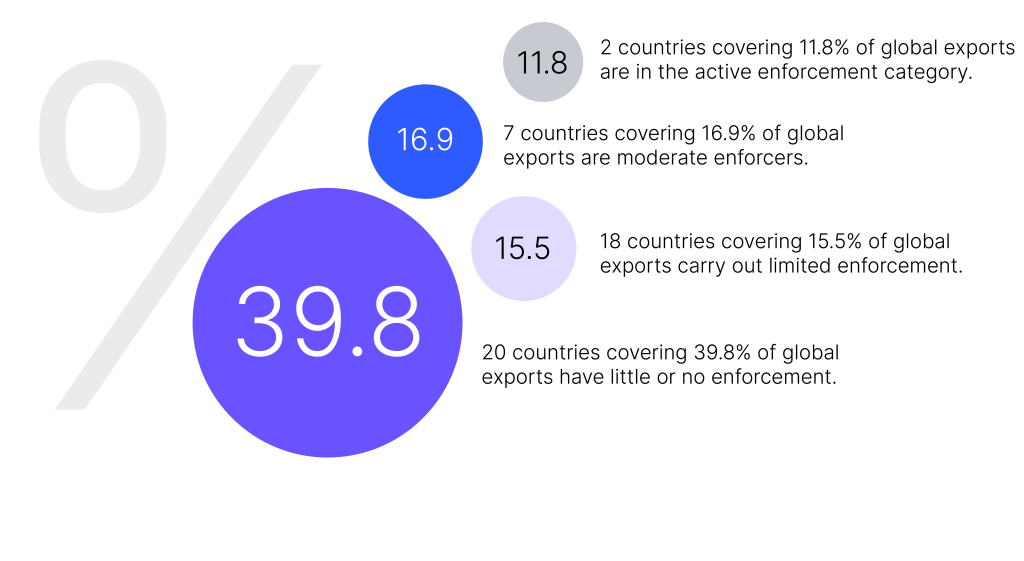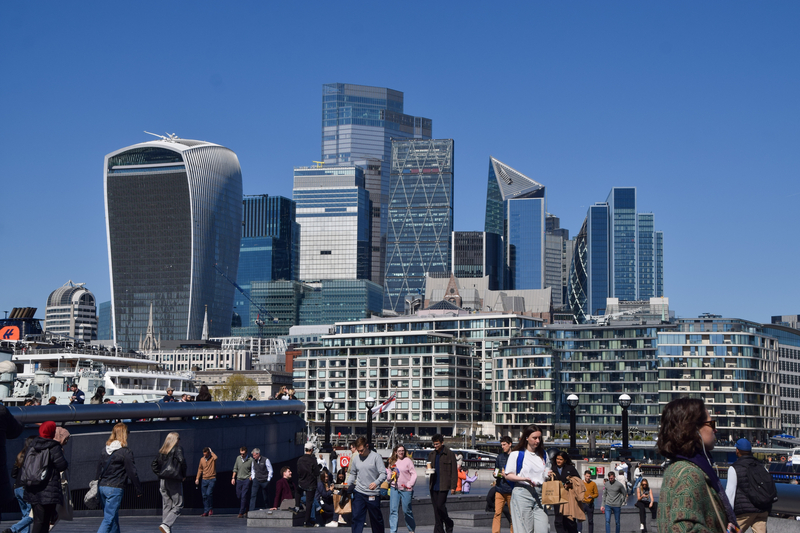Transparency International’s latest report reveals what it calls “an alarming downward trend” in action by governments across the world to combat the bribery of public officials by multinational companies.
The organization analyzed 47 countries and activity covering 84% of global trade. Only two countries, the United States and Switzerland, are categorized as active enforcers, with the UK and Israel dropping out of the active category and into the group classified as moderate. China, the world’s top exporter, and India remain in the limited or no enforcement categories which contain 38 countries and cover 55% of world trade.
“In many countries the downward trend predates the crisis, and the current picture raises significant concerns.”
Transparency International
Only Latvia and Peru have shown any improvement, with Italy and Denmark also falling. Transparency International says: “The Covid-19 pandemic has undoubtedly posed a major hindrance at every stage of enforcement from investigation to prosecution, but in many countries the downward trend predates the crisis, and the current picture raises significant concerns.”
Latest findings
The organization has been independently tracking major trading countries’ progress in enforcing measures to prevent foreign bribery since 2009. It issues biennial reports rating countries on a number of factors including number of investigations commenced, charges filed and cases concluded with sanctions. It then places each country into one of four categories. The latest findings show;

“Nearly every country has serious inadequacies in their laws and institutions, which hamper enforcement against foreign bribery.”
Transparency International
Assessing a set of results which continue a downward trend that can be traced back to 2009, Transparency International says: “We find that nearly every country has serious inadequacies in their laws and institutions, which hamper enforcement against foreign bribery.
“These include problems related to whistleblower protection, the level of sanctions, a lack of training and resources, the underfunding of key enforcement agencies, poor inter-agency coordination, and the insufficient independence of prosecution services and the courts.”
Compensation falls short
Even when enforcement is carried out, foreign bribery is too often treated as a victimless crime. “In the countries that do enforce against foreign bribery, confiscated proceeds of corruption and disgorged profits usually go into their own treasuries. Compensation is seldom made to the states, populations, groups or individuals directly harmed,” says the organization.
As an example, the report references the infamous Mozambique hidden debt scandal, in which European bankers and Middle East business interests conspired to organize a $2bn dollar loan to Mozambique – none of which reached the country except as bribes. A coordinated global settlement was eventually reached and Credit Suisse forgave $200m of debt owed by the country. But the knock-on effects of the scandal are estimated to have cost Mozambique at least $11bn – nearly the entire 2016 GDP of the nation.
“The need for enforcement is stronger than ever; including to avoid a race to the bottom.”
Transparency International
The report concludes with a stark warning. “The current global environment carries risks of a declining commitment to foreign bribery enforcement… Any short-term illicit profits from foreign bribery are secured at the cost of instability, inequality and a poor environment for international trade and investment – to the detriment of all.
“The need for enforcement is stronger than ever; including to avoid a race to the bottom in the use of bribery in the contest for foreign markets.”
Six steps
Six key steps to “stop rampant foreign bribery” are set out.
- Fix weak legal frameworks and prioritise enforcement.
- Openly publish enforcement statistics and judgements.
- Confiscate ill-gained profits and introduce victim compensation as standard.
- Support stronger systems for cross-border cooperation.
- Monitor non-trial resolutions closely.
- Support the monitoring work of the OECD Working Group on Bribery.
















